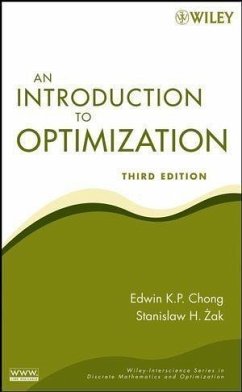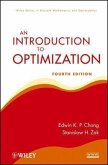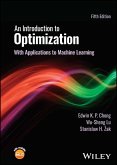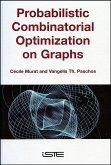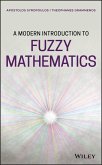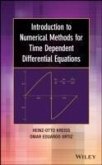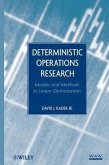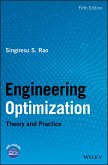Praise from the Second Edition "...an excellent introduction to optimization theory..." (Journal of Mathematical Psychology, 2002) "A textbook for a one-semester course on optimization theory and methods at the senior undergraduate or beginning graduate level." (SciTech Book News, Vol. 26, No. 2, June 2002) Explore the latest applications of optimization theory and methods Optimization is central to any problem involving decision making in many disciplines, such as engineering, mathematics, statistics, economics, and computer science. Now, more than ever, it is increasingly vital to have a firm grasp of the topic due to the rapid progress in computer technology, including the development and availability of user-friendly software, high-speed and parallel processors, and networks. Fully updated to reflect modern developments in the field, An Introduction to Optimization, Third Edition fills the need for an accessible, yet rigorous, introduction to optimization theory and methods. The book begins with a review of basic definitions and notations and also provides the related fundamental background of linear algebra, geometry, and calculus. With this foundation, the authors explore the essential topics of unconstrained optimization problems, linear programming problems, and nonlinear constrained optimization. An optimization perspective on global search methods is featured and includes discussions on genetic algorithms, particle swarm optimization, and the simulated annealing algorithm. In addition, the book includes an elementary introduction to artificial neural networks, convex optimization, and multi-objective optimization, all of which are of tremendous interest to students, researchers, and practitioners. Additional features of the Third Edition include: * New discussions of semidefinite programming and Lagrangian algorithms * A new chapter on global search methods * A new chapter on multipleobjective optimization * New and modified examples and exercises in each chapter as well as an updated bibliography containing new references * An updated Instructor's Manual with fully worked-out solutions to the exercises Numerous diagrams and figures found throughout the text complement the written presentation of key concepts, and each chapter is followed by MATLAB exercises and drill problems that reinforce the discussed theory and algorithms. With innovative coverage and a straightforward approach, An Introduction to Optimization, Third Edition is an excellent book for courses in optimization theory and methods at the upper-undergraduate and graduate levels. It also serves as a useful, self-contained reference for researchers and professionals in a wide array of fields.
Dieser Download kann aus rechtlichen Gründen nur mit Rechnungsadresse in A, B, BG, CY, CZ, D, DK, EW, E, FIN, F, GR, HR, H, IRL, I, LT, L, LR, M, NL, PL, P, R, S, SLO, SK ausgeliefert werden.

